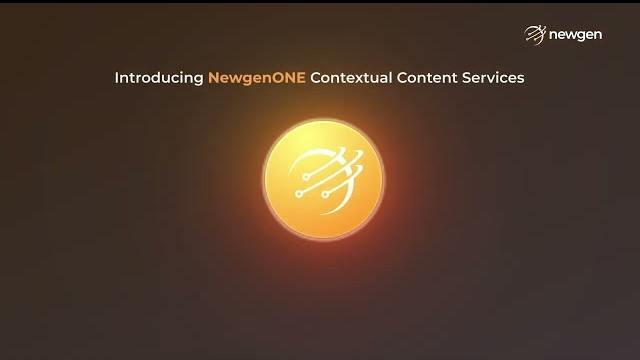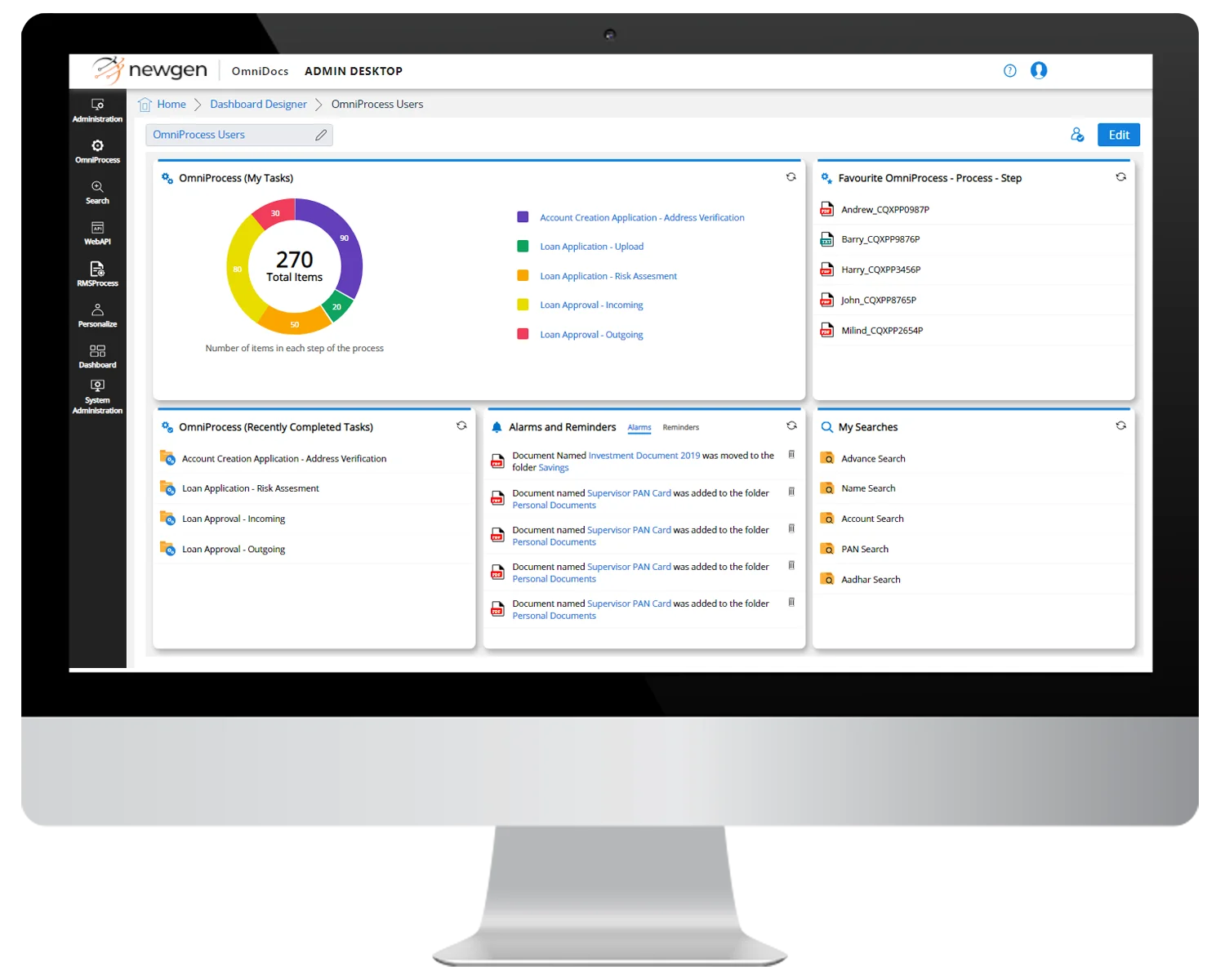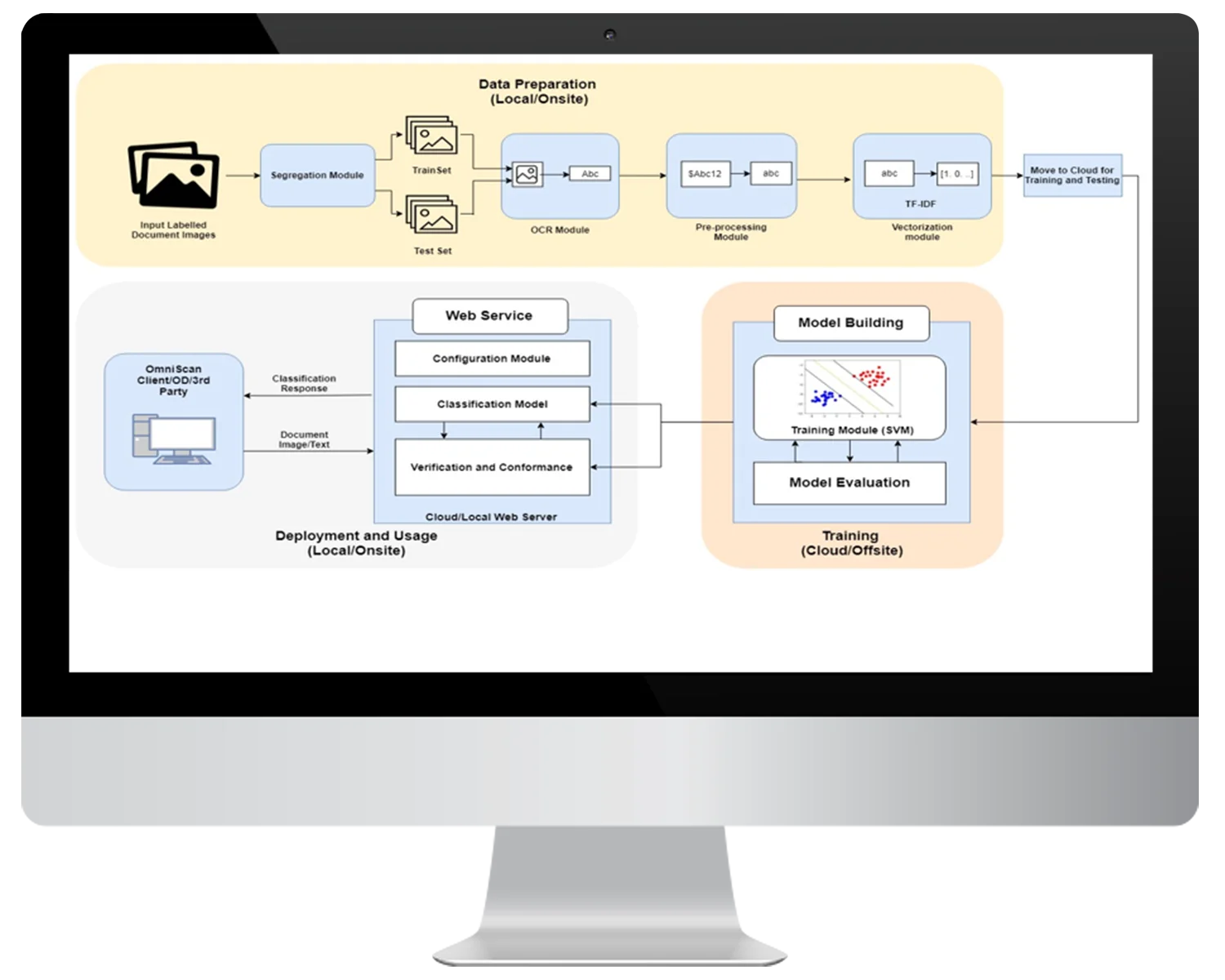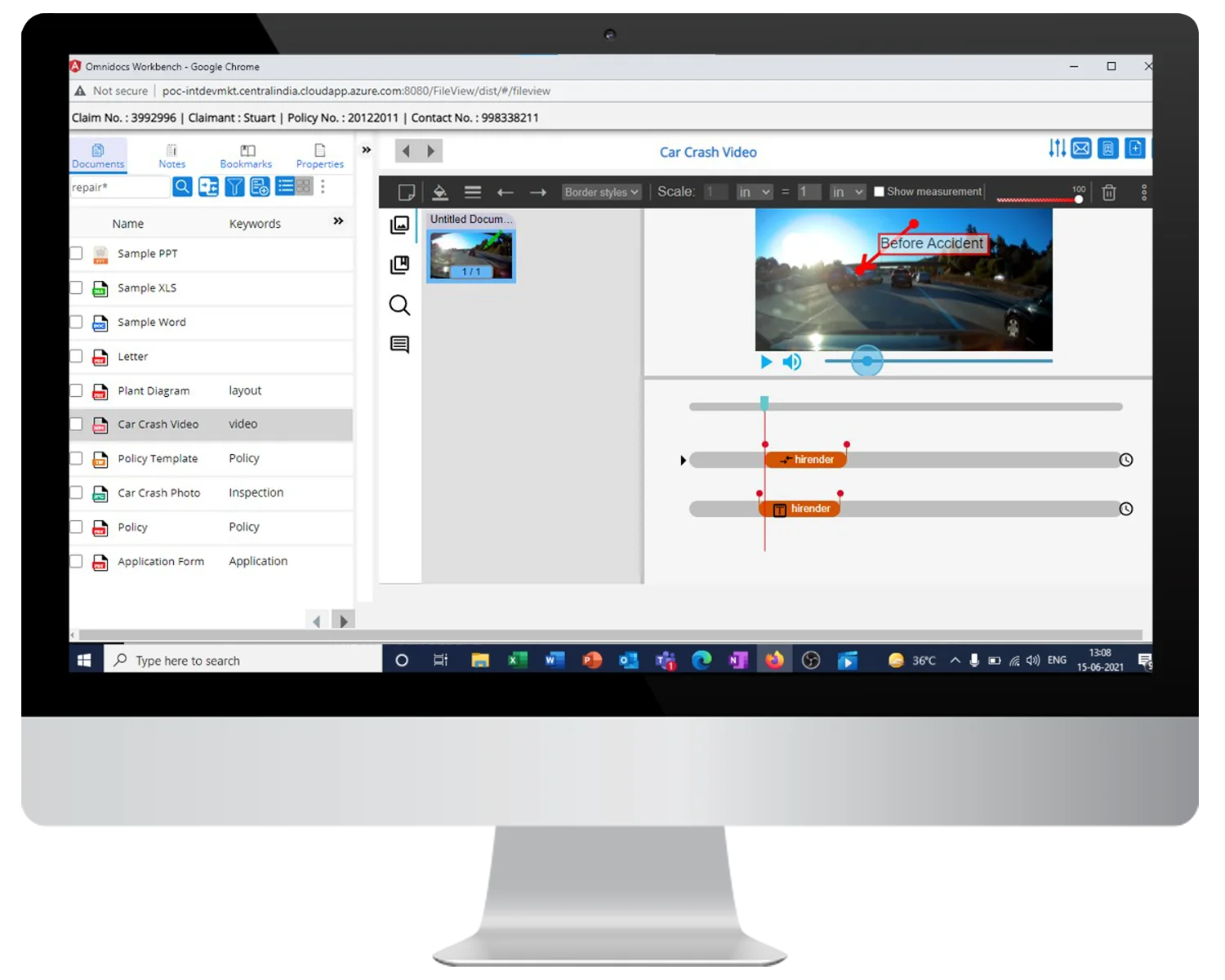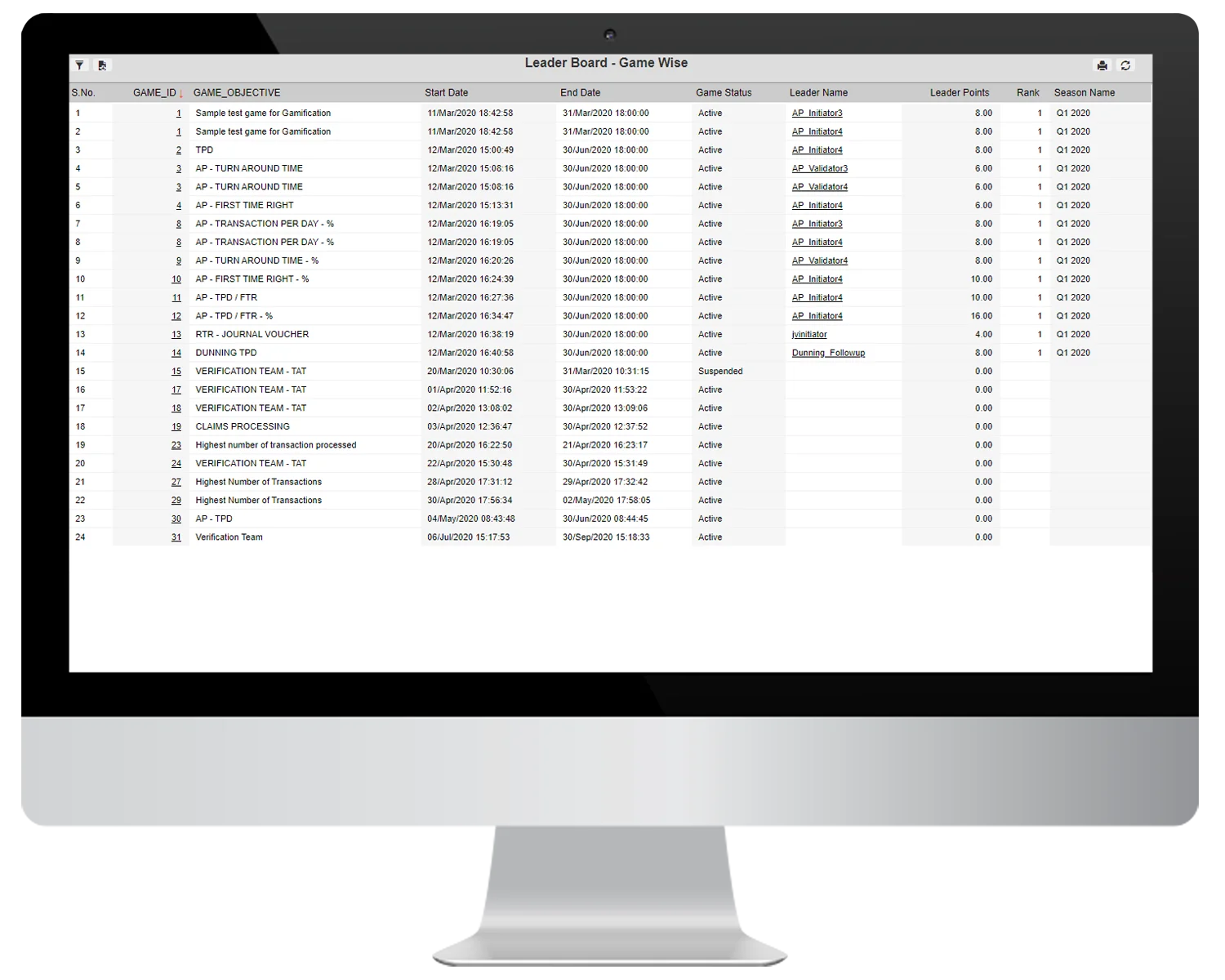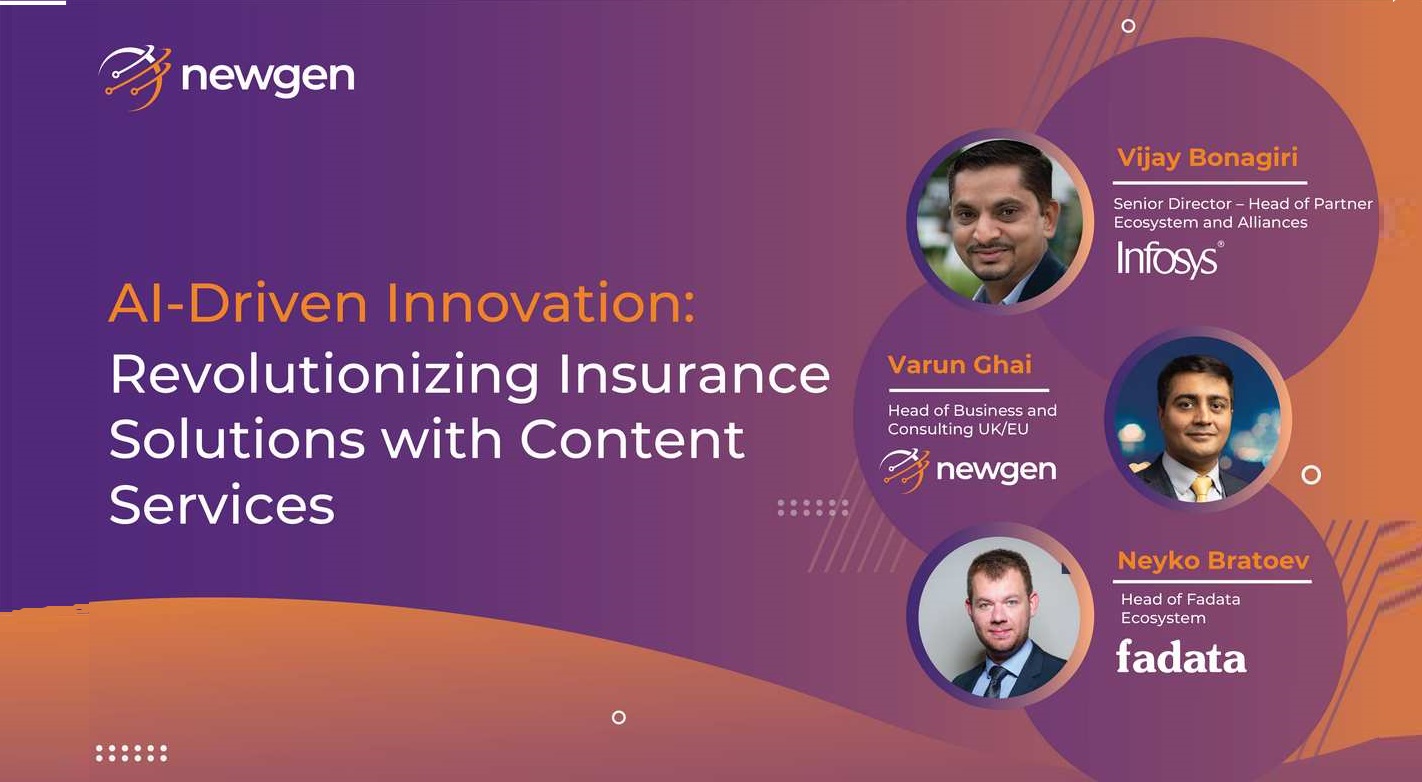Embrace Digital Transformation with AI-First Contextual Content Services
Unlock the power of Contextual Content Services to automate your entire content lifecycle management across all types of content within your organization. Our advanced platform delivers real-time outcomes through automated ingestion and processing of documents and digital media in content-centric workflows. Leverage Intelligent Document Processing (IDP) for AI-powered extraction of insights from any document type—enabling smarter, faster responses and improved decision-making. Scale effortlessly to manage billions of documents with our industry-leading content services platform on the cloud.
Why Should Enterprises Choose NewgenONE Content Services Platform?
Transform Your Content Management Today
Manage billions of documents, automate workflows, and ensure compliance—all in one platform. Discover how a Content Services Platform can transform your content management.
Organizations looking for an advanced content platform capable of scaling for heavy workloads and that need deployment flexibility and advanced automation and AI capabilities should consider Newgen.
The Forrester Wave™: Content Platforms, Q1 2025

Contextual Content Services Capabilities of NewgenONE Platform
Lead with an Industry-recognized Platform
All you need to know about Contextual Content Services
Content services refer to the combination of IT infrastructure, new-age technologies, and unique functionalities that enable end-to-end management of enterprise-wide content. A content services platform establishes a digital and connected workplace, empowering all the users with contextual information and access to relevant content.
For example, Newgen Content Services Platform offers innovative tools to capture content from multiple sources, manage it in a secure, centralized repository, and make information accessible to the relevant stakeholders anytime, anywhere. It offers flexibility to access or deliver content via mobile and cloud, creating a highly connected and digital workplace. Furthermore, it helps enterprises mitigate business risks by ensuring compliance with various regulatory requirements and securing business-critical information.
Large enterprises use content services platforms to:
- Ensure content governance and compliance
- Enable efficient content extraction
- Facilitate secure information access
- Drive contextual engagement
- Streamline content lifecycle
- Enable hybrid records management
Yes. Continuously changing regulatory requirements, evolving customer expectations, and increased competition are driving organizations to upgrade to content services platforms. In order to stay ahead of the curve, enterprises must modernize their content management systems, especially to keep up with the growing influx of content, in various formats and through multiple channels.
While your old content management system may be serving your business needs right now, the pervasive nature of the content and the importance of data and insights cannot be overlooked. You must invest in a content services platform that maximizes your current infrastructure and technology investments while giving you the flexibility and agility to adapt to future evolving requirements and business gaps.
With a content services platform upgrade, you can:
- Transform the way you manage your content
- Enable a seamless, secure, and digital workplace
- Enable artificial intelligence and machine learning-driven smarter decisions
- Empower your IT workforce
- Allow for effective collaboration and communication between stakeholders
- Ensure business continuity with cloud-based deployment
- Stay secure and compliant with regulatory requirements
- Leverage a foolproof migration strategy
- Facilitate a rapid and on-budget go-live
A cloud-based content services platform is a cost-effective alternative to a traditional on-premise setup. It enables a seamless flow of content across the organization, allowing users to access content anytime-anywhere. You can start with minimal investment and opt for a pay-as-you-go model per your scalability needs.
The “speed of business transformation” is the real game-changer in today’s competitive business environment. It is one of the most compelling reasons for adopting the cloud, along with the following:
- Transit to a Remotely Distributed Environment
- Build a Connected Enterprise
- Ensure Scalability and Flexibility
- Optimize Costs
- Improve Collaboration and Visibility
- Ensure Certainty with a Disaster Recovery Plan
- Be Compliant with Regulations
You can leverage the content services platform on the cloud to operate in a remote environment, meet evolving business needs, integrate seamlessly with your existing IT systems, and deliver a delightful customer experience.
